Bar Copo on Beyond The Pass
The corner boteco bringing a slice of home comfort to South Americans in Bondi.
In this episode, Gui Passos (Bar Copo Co-owner & Manager), alongside Lightspeed’s own Graeme Alexander chat about home comforts, South American spirits and the twice-cooked pork belly that carries South American cuisine on its back. Plus, Graeme eats “the best sandwich I’ve had.”

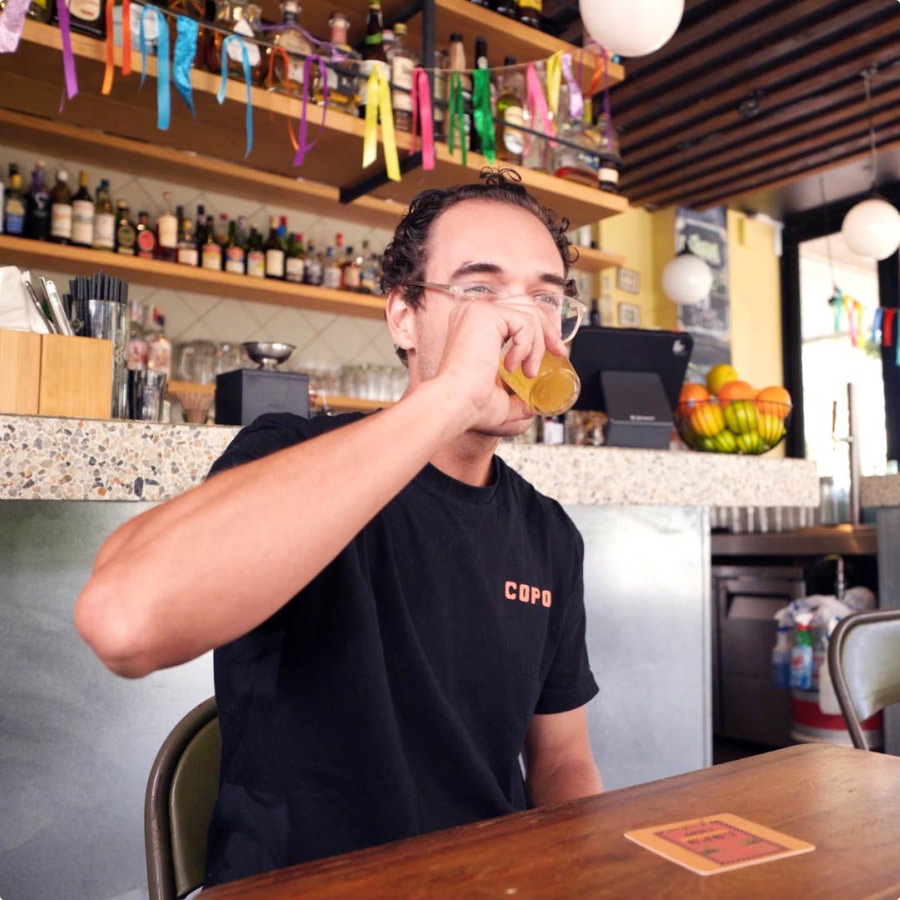
Who are they?
Bondi's own neighbourhood boteco
What do they do?
Brazilian/South American hospitality
Since when?
2020
Bar Copo has triumphed despite a bit of a rocky start.
Opening in early 2020, it was inevitably forced to close its doors to the public after only 2 weeks of operating due to the pandemic.
Instead of seeing this as an obstacle, they saw it as an opportunity. In their very short life so far, they had already found themselves popular with the Brazilian and South American population of Bondi (for the uninitiated, there are a lot of them). And so, they took it upon themselves to provide a slice of home for their fellow expats stranded so far away.
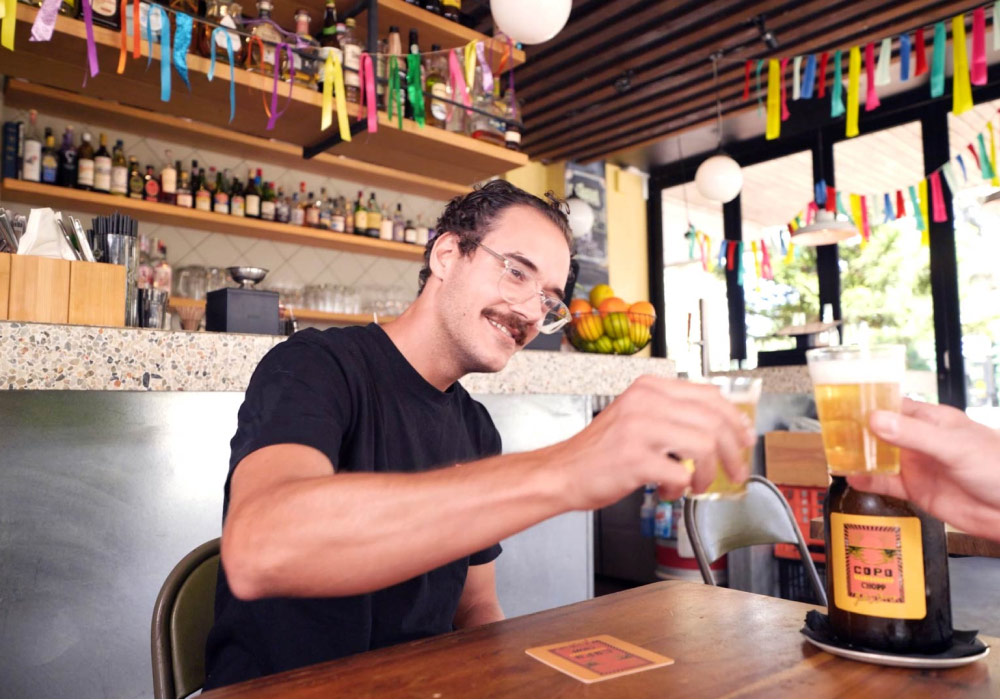
That welcoming feeling hits you as soon as you step over the threshold.
Now, 4 years later, Bar Copo has turned the corner of Hall & Glenayr into a little slice of Rio, a shining, vibrant beacon for South Americans to flock to and boast about, where the sights, sounds and smells of Brazil’s famous botecos spill out onto the street and drag any innocent passerby inside to enjoy its spoils.
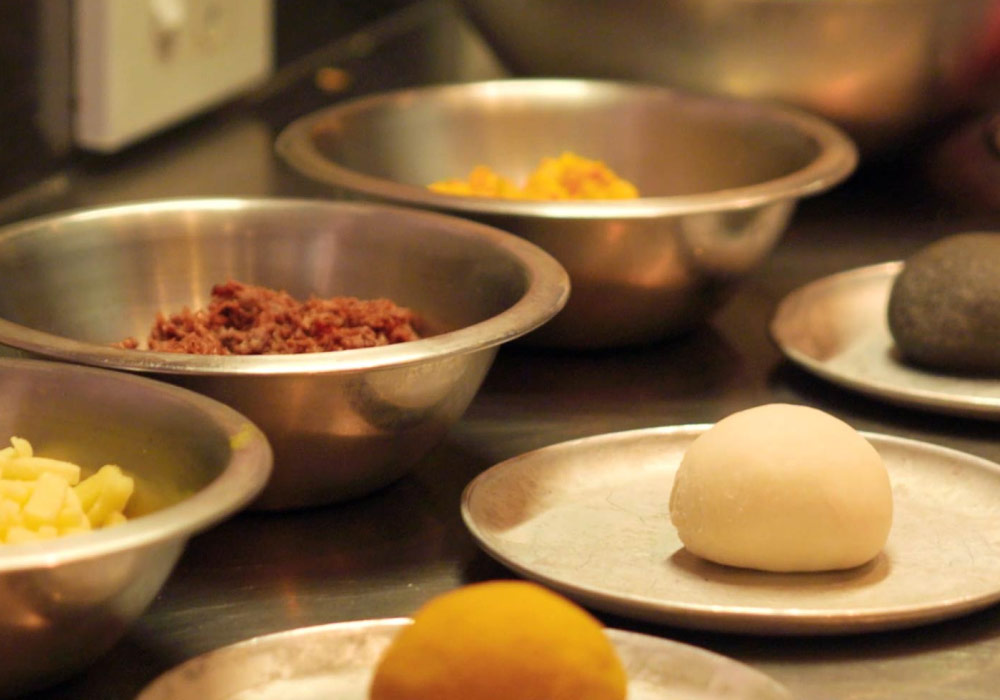
We're starting with Pasteles
The kitchen at Bar Copo is very much my type of kitchen. It’s what I would consider 100% functional, not one inch of space is wasted, all available real estate is maximised.
I’m told we’ll be starting off by making Pasteles: Brazil’s version of an empanada. Before me are 3 different coloured balls of dough (cleverly colour-coded to identify the filling) and 3 bowls full of fillings. There’s slow-cooked beef shin, mozzarella, and a creamy prawn moqueca (a Brazilian fish stew).
I’m tasked with the moqueca and Marcos demonstrates with a casual ease how to roll out the dough, fill it, seal it and finally, trim it. Now, I’ve been making food long enough to know when something looks as easy as Marcos made it look, things are about to get tricky, but I manage to handle myself with a surprising amount of competency and Marcos lies straight to my face when he says that mine actually looks better than his.
Our pasteles are then dropped into a waiting deep fryer to be cooked to crisp perfection before we get to sample the fruits of our labour.
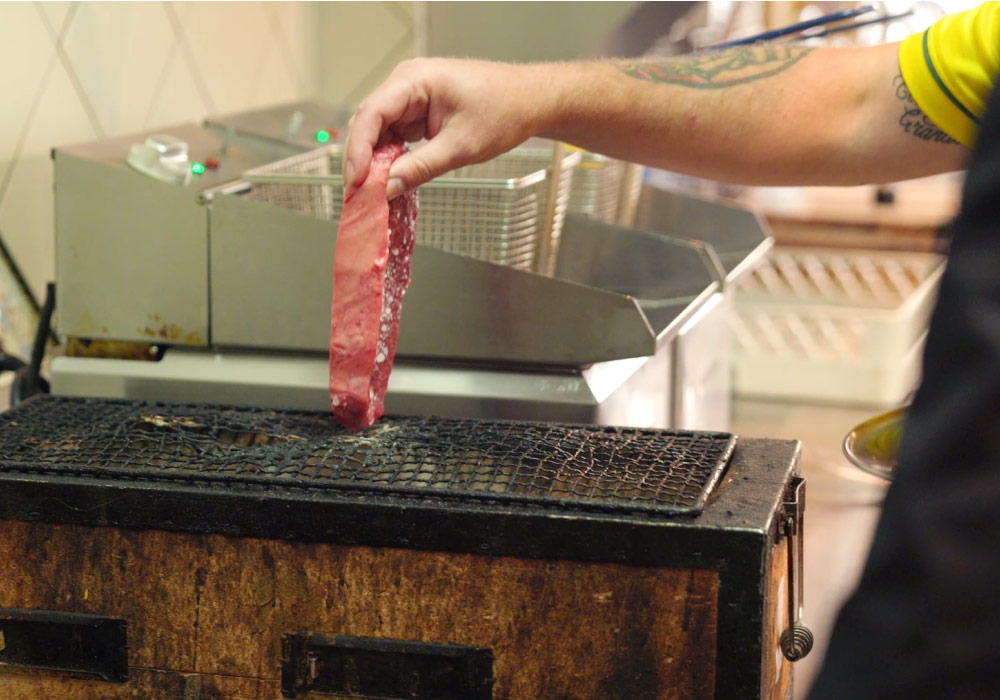
Next is the BBQ picanha
I get to play near fire again!
With our pasteles cooked and tasted, we move onto something a little more risky: steak. And like all good Brazilian BBQ, this means a hearty piece of picanha cooked over the coals.
Now, I’ve never worked in a kitchen that served steak. Sure, I’ve cooked a million of them at home, and I don’t think it’s arrogant to say I’m pretty good at it. But at home, the risk is miniscule. If I mess it up, it’s only me (and occasionally my family) that’s left a little saddened when I completely mess up the temps and serve them something still mooing.
Cooking steak perfectly on camera whilst the guy who’s paying for it watches on is a different ball game and one I was—probably rightly—not picked to play, my role relegated to salting the meat and laying it carefully onto the grill before handing the reins back into Marcos’ infinitely more-capable hands.
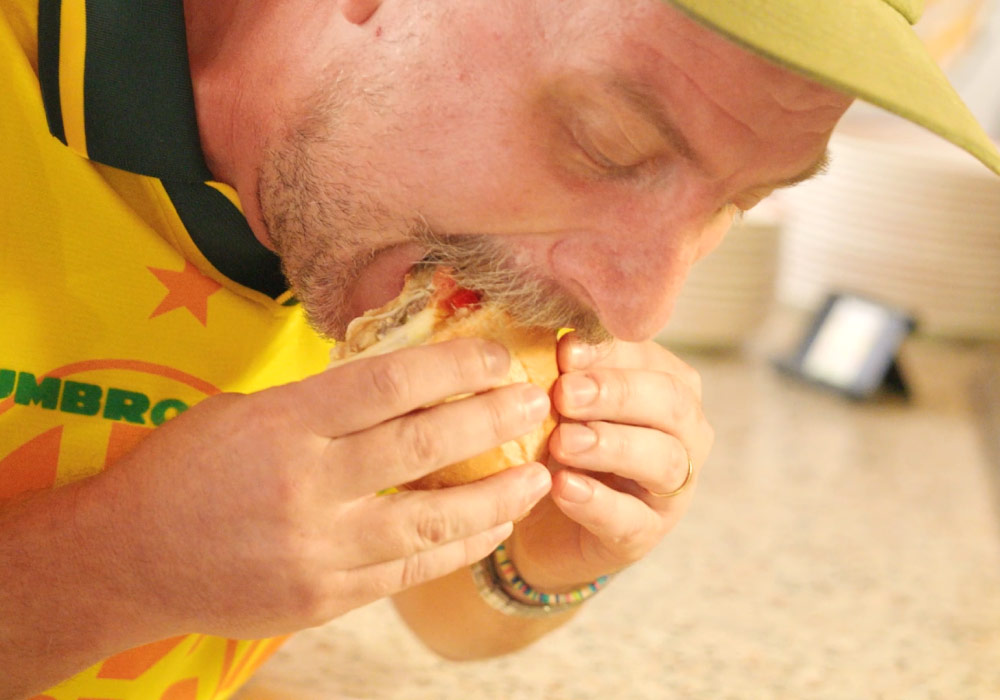
Once the picanha is cooked, it’s chopped up and blanketed with melted mozzarella, then shovelled onto a bread roll with a few hearty helpings of vinaigrette (Brazilian salsa mix, similar to pico de gallo), mustard and aioli.
The little dignity I have goes out the window as I forget that I’m being filmed and unhinge my jaw to taste what turns out to be the sandwich I will dream about until the end of time.
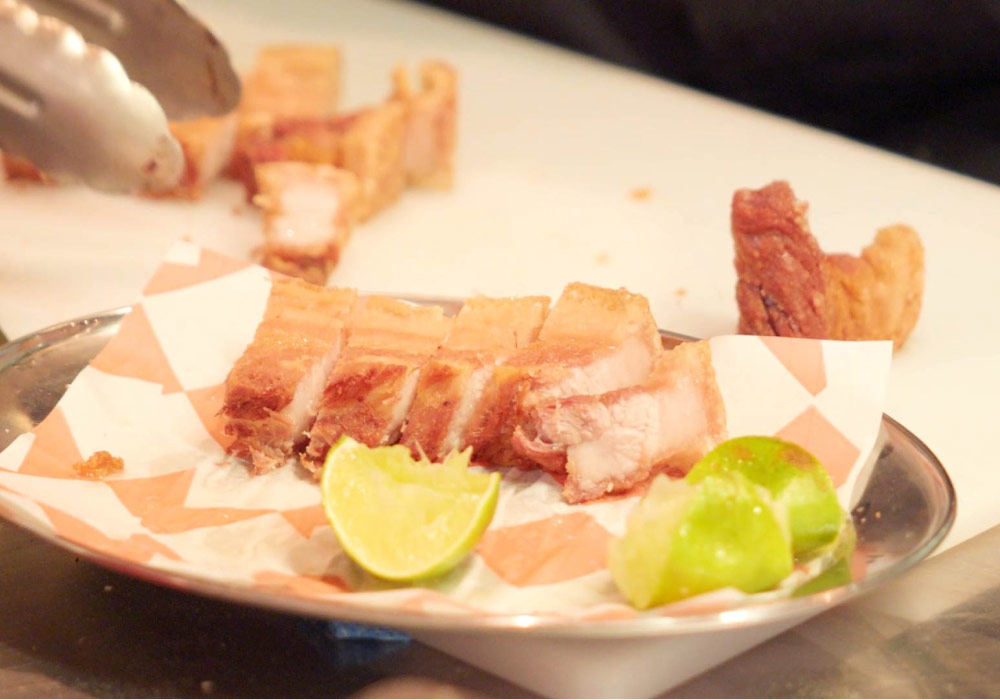
And finally, the Chicharron
“It carries South American cuisine on its back.”
Pork is, in my opinion, the top-tier meat. No other animal has the versatility and spectrum of flavours that a pig has. You can roast it, braise it, pull it, smoke it, cure it, fry it, mince it and each method tastes different to the last.
Today, we will employ more than one of these techniques to create arguably (but seriously, there’s not much argument against this) the endgame for pork—the Everest of all equine culinary endeavours, encapsulating everything that is so great about this animal: chicharron.
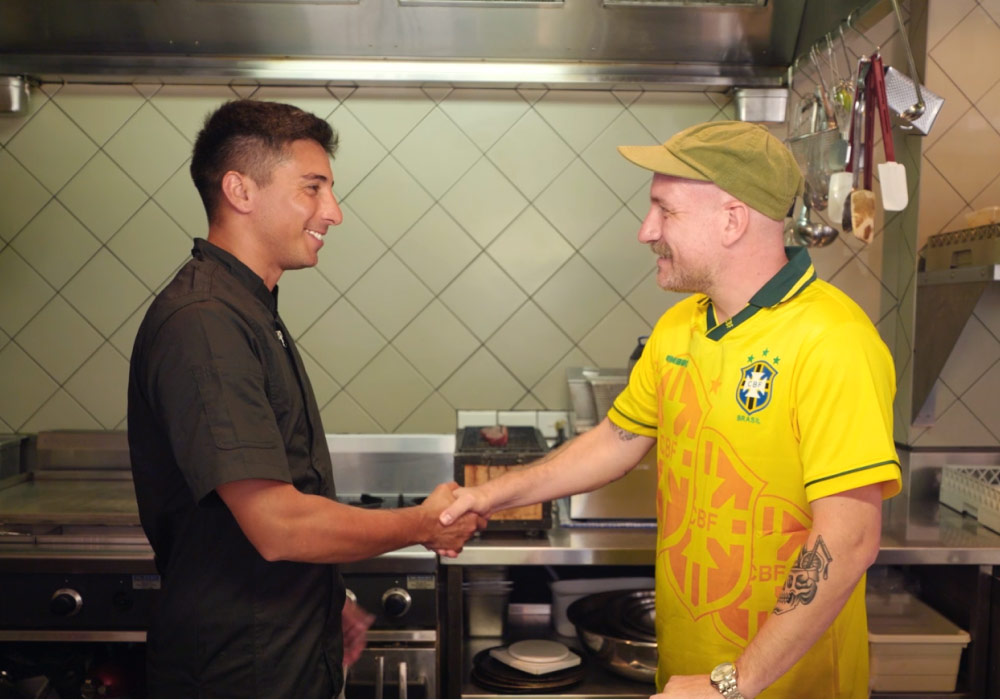
As Gui says, South American cuisine is carried by this ubiquitous dish, as crucial to their culinary identity as chicken salt is to our own, and it’s for good reason.
Pork belly is first roasted, and then deep fried to achieve the crunchiest, most artery clogging crackling known to humanity. A healthy squeeze of fresh lime helps keep the chest pains at bay and I can feel the universe whispering sweet nothings into my ear as the crispy rind shatters in my mouth.
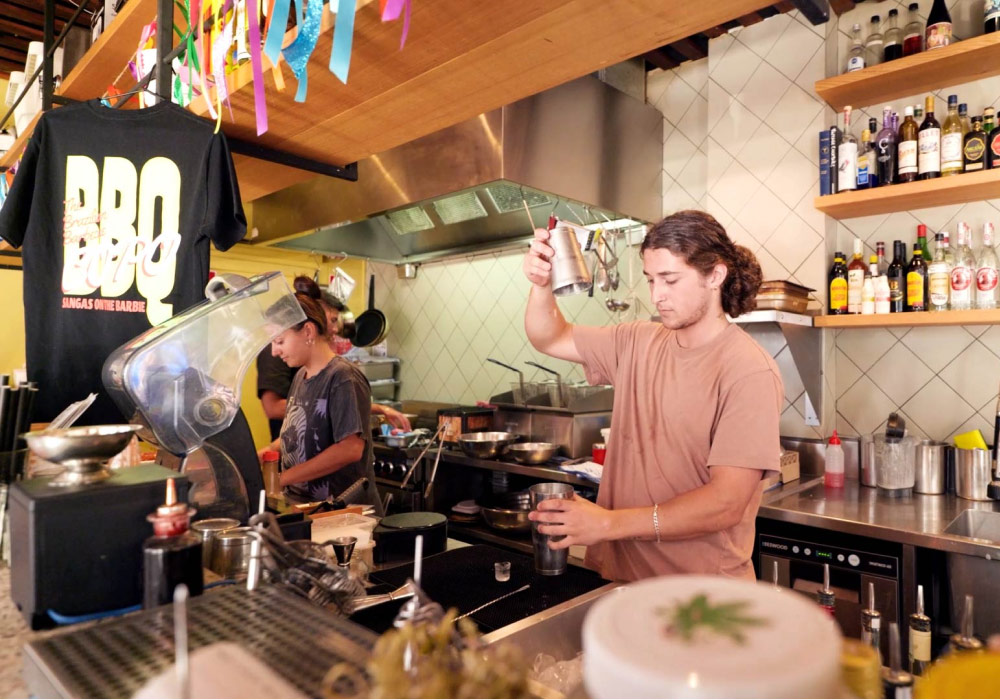
A rocky start
“We served every single Brazilian in Sydney in those 2 weeks”
Bar Copo was open for only 2 weeks before the covid lockdowns happened, forcing them to close their doors to the public. It’s the type of thing that can crush the best of places, but thankfully, not Bar Copo.
They quickly stood up to the challenge of providing for not only the many South Americans now stranded over here in Australia, but the local community itself, setting up Copo em Casa which brought the Bar Copo experience to people’s homes.
In giving the community the opportunity to bring a little bit of Bar Copo home with them, they managed to foster a following which were ready to come flocking to them once their doors reopened.
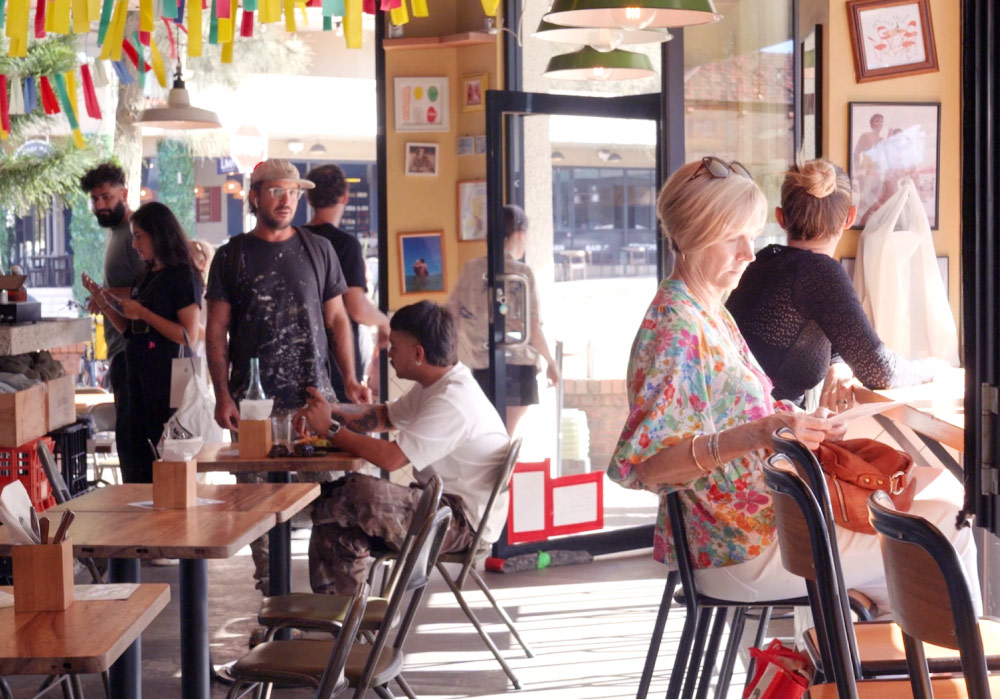
Feels like home
“It’s a very personal experience”
When I asked Gui what Bar Copo meant to him, I did not expect his answer to resonate with me so profoundly. The way he explained the idea of Brazilian botecos being an extension of the proprietor’s home suddenly made the comfortable vibes I felt instantly upon entering Bar Copo make complete sense.
Everything in Bar Copo is deliberate. Gui wants you to feel at ease to do whatever you like, whether that be dancing to the live bands that play out onto the street every weekend, or sitting down and sharing a few drinks and a bite to eat with some friends, there is no default behaviour here, do whatever you like.
This manifests itself in many ways, but none more so than Bar Copo’s namesake: the Copo Americano. This 190ml glass is the final piece of the puzzle when it comes to bringing Brazil to Bondi. Ubiquitous with the Brazilian way of life, it’s hard to explain, but as soon as your hand grips it, you begin to understand Bar Copo on a level that Gui wants you to.
Sitting opposite a friend with a squealer full of beer, shooting the breeze whilst topping up each other’s copo glasses is, to me, the perfect way to drink. A harsh truth coming from somebody who grew up worshipping at the altar of the hallowed pint glass.
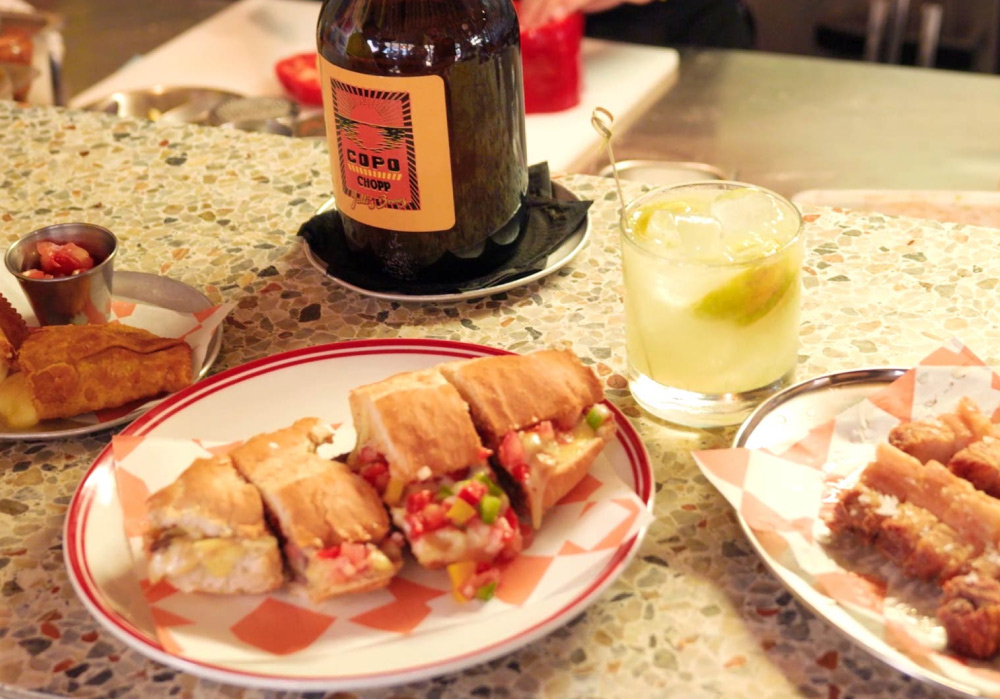
A true boteco
"There’s a letter in the middle that you guys don’t even have in English!"
Gui’s dedication to authenticity isn’t the usual, stubborn interpretation that most operators choose to adhere to. He is loyal to the authenticity of the boteco as a concept, above all else.
In Gui’s words, to be a boteco is to be a neighbourhood bar, which means that some things have to change in order to truly serve the neighbourhood. It’s this understanding and flexibility that has seen Bar Copo succeed where others may have failed.
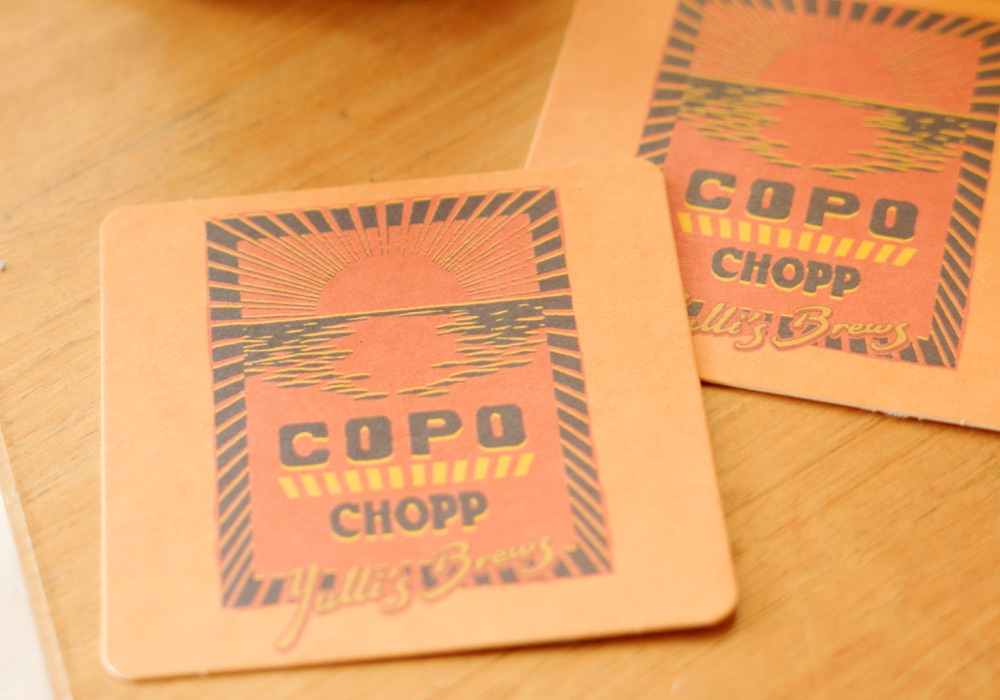
Where wine isn’t the most popular drink back in Brazil, here in Australia, it most certainly is. As a result, Bar Copo’s wine list can go toe-to-toe with the best of them.
But it’s the cachaça that is the star here. The Brazilian sugarcane spirit peppers their drinks list, but you won’t find any run-of-the-mill Sagatiba here, Gui refuses to stock it. Only the best cachaças make their way onto the shelves here because at Bar Copo, you drink what Gui drinks and, thankfully, Gui has top shelf tastes.